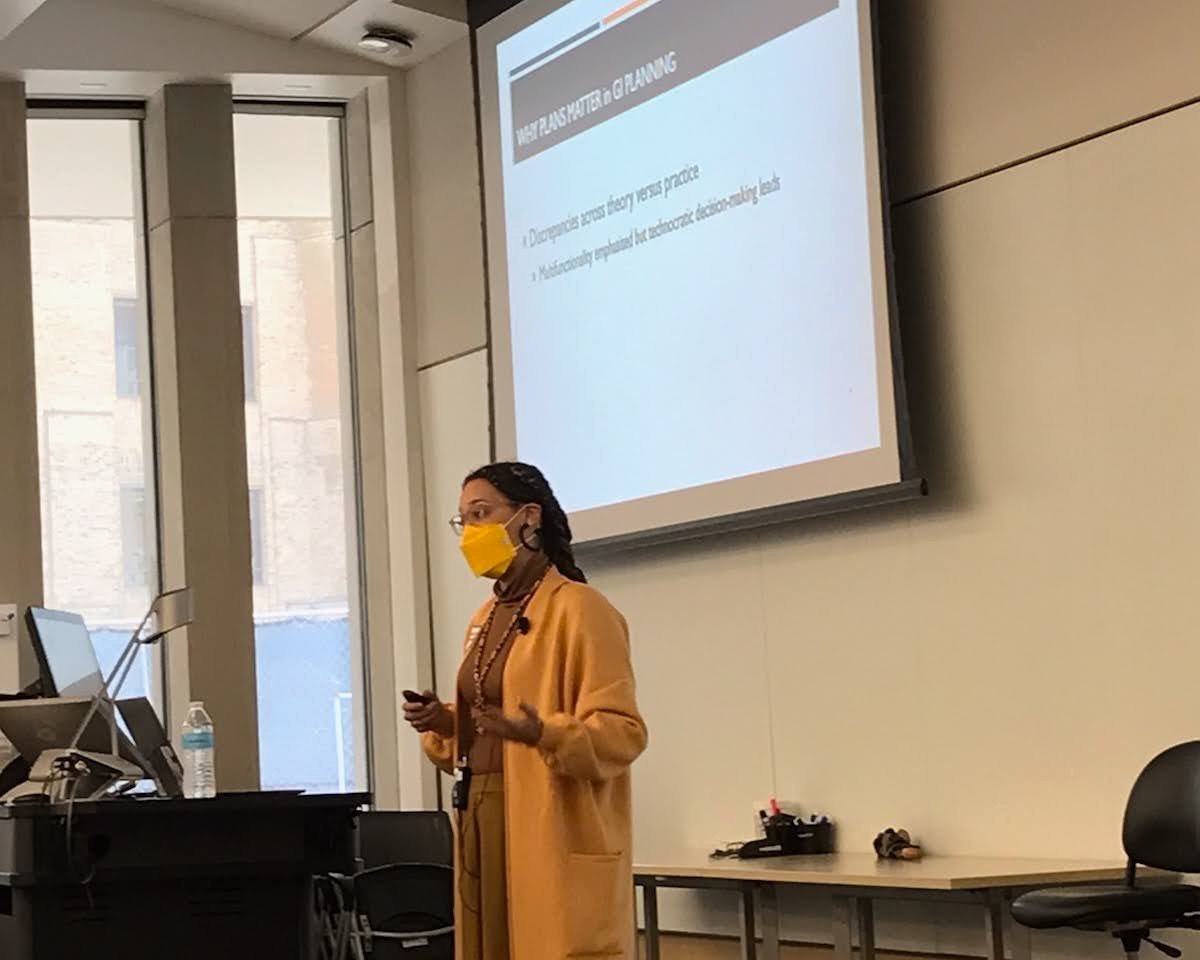Teaching.
Who we are is in direct relationship to the space and land we are from. Situating place and identity in environmental planning discourse is an integral component of my teaching. By merging theories that center race and environmental justice with urban greenspace and planning, I create pathways for students to explore relationships between socio-environmental interactions, urban planning, and community building.

Courses
Environmental Planning
GEOG 3215-01
Course Description: Urban environments are some of the most highly managed spaces, where people shape who, what, where, and how natural and environmental resources are managed and accessed. Social drivers play a large in these decision-making processes, but may not be incorporated into urban planning practices or techniques. This writing-intensive course explores the interaction and relationships between natural and human-made elements of the environment with emphasis on planning concepts and methodologies used in contemporary environmental planning.
Black Place-Making: Introduction to Black Geographies
GEOG 4700/5300
Course Description: Black geographies is a discipline within the critical geographies cannon that studies the social, political, cultural, economic, and ecological aspects of race in/and geography. The course encourages critical reflection on the issues, processes, intrinsic qualities, and interconnections that shape Black lives and geographies on local, national, continental, and international scales. This course introduces students to the rich body of literature and activism highlighting the characteristics, politics, and practices that shape and are shaped by Black communities, and their connections to place, self and the environment. The course focuses on the United States, but examples and readings from across the diaspora will be included. In this seminar-style class, students will be encouraged to engage in critical reflection and creative thinking. Black Geographies topics to be covered include but are not limited to: place-making and Black aesthetics, environmental stewardship and activism, and community means of resistance.
Environment, Society and Sustainability
ESCI 1501
Course Description: This course examines the current global environmental processes, with a primary focus on how race, gender, class, geographic location, and other social factors shape our understanding of and responses to sustainability. We will explore the history of environmental movements and the critical contributions of scholars, activists, and organizations. We will consider a range of topics, including climate change, water, waste, decision-making and sustainable development. Case studies, readings and lectures will cover countries across the globe and we will trace ‘cradle to grave’ processes to understand how sustainability in one country does not always mean sustainability in another. We will focus on water and energy systems in particular and students will learn through case studies, examples of similarities and dissimilarities within environmental systems, and concepts/theories of sustainability.
Environmental and Climate In/Justice
GEOG 4200/5200
Course Description: This course introduces students to the history of the environmental justice movement, exploring the environmental issues, policies, and government and community responses to addressing environmental injustice. Students will learn about environmental justice through empirical studies on the spatial distribution of environmental quality and health, enforcement of regulations, access to resources to respond to urban and industrial problems, and environmental decision-making processes through the lens of race and class. Course readings, videos, and lectures will analyze how communities of color, rural, and/or low-income communities, and undocumented immigrants improve environmental regulations and policies through their resistance and activism, despite their exclusion from environmental planning and decision-making processes. Lastly, students will be introduced to community and government led strategies to promote environmentally just development.



